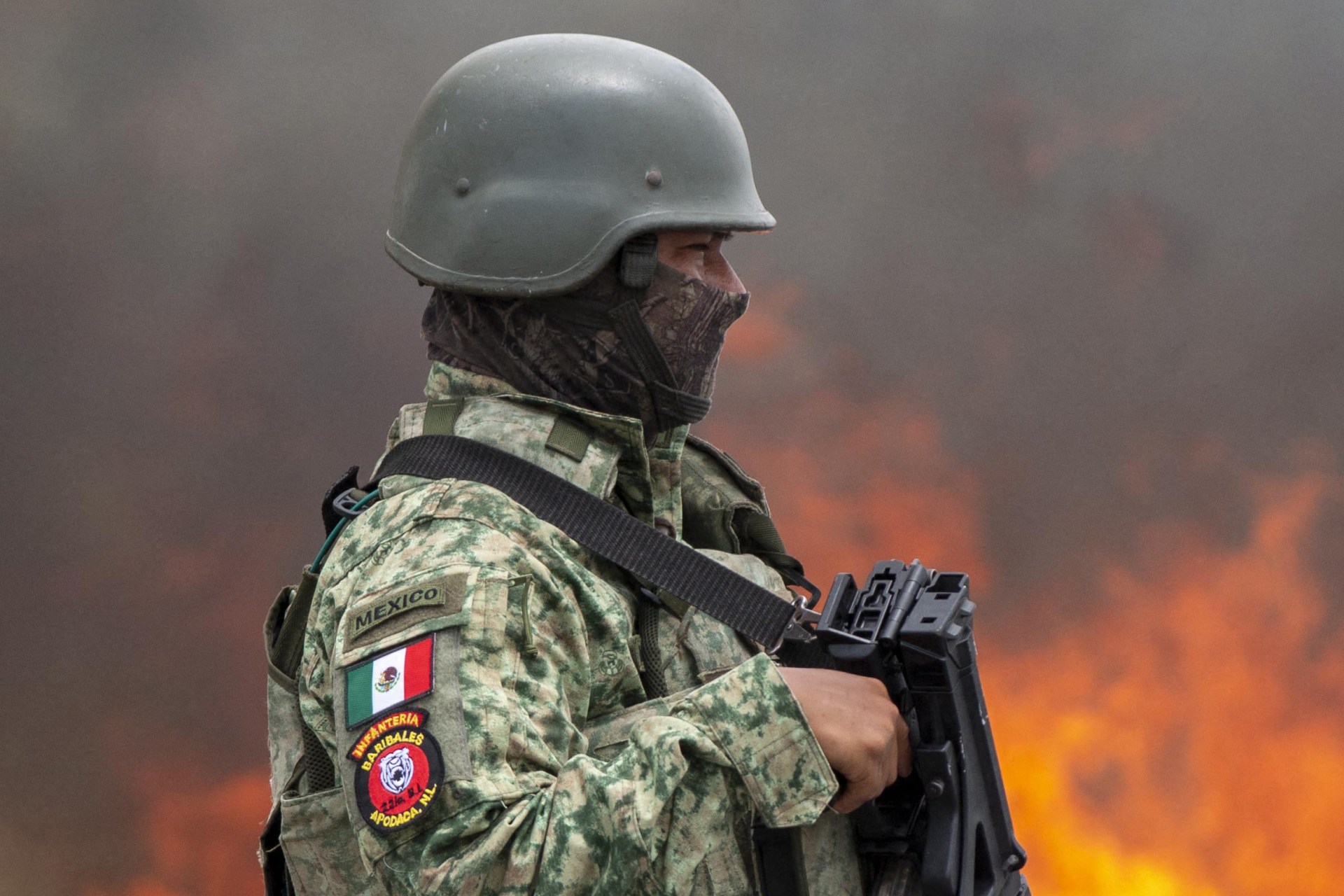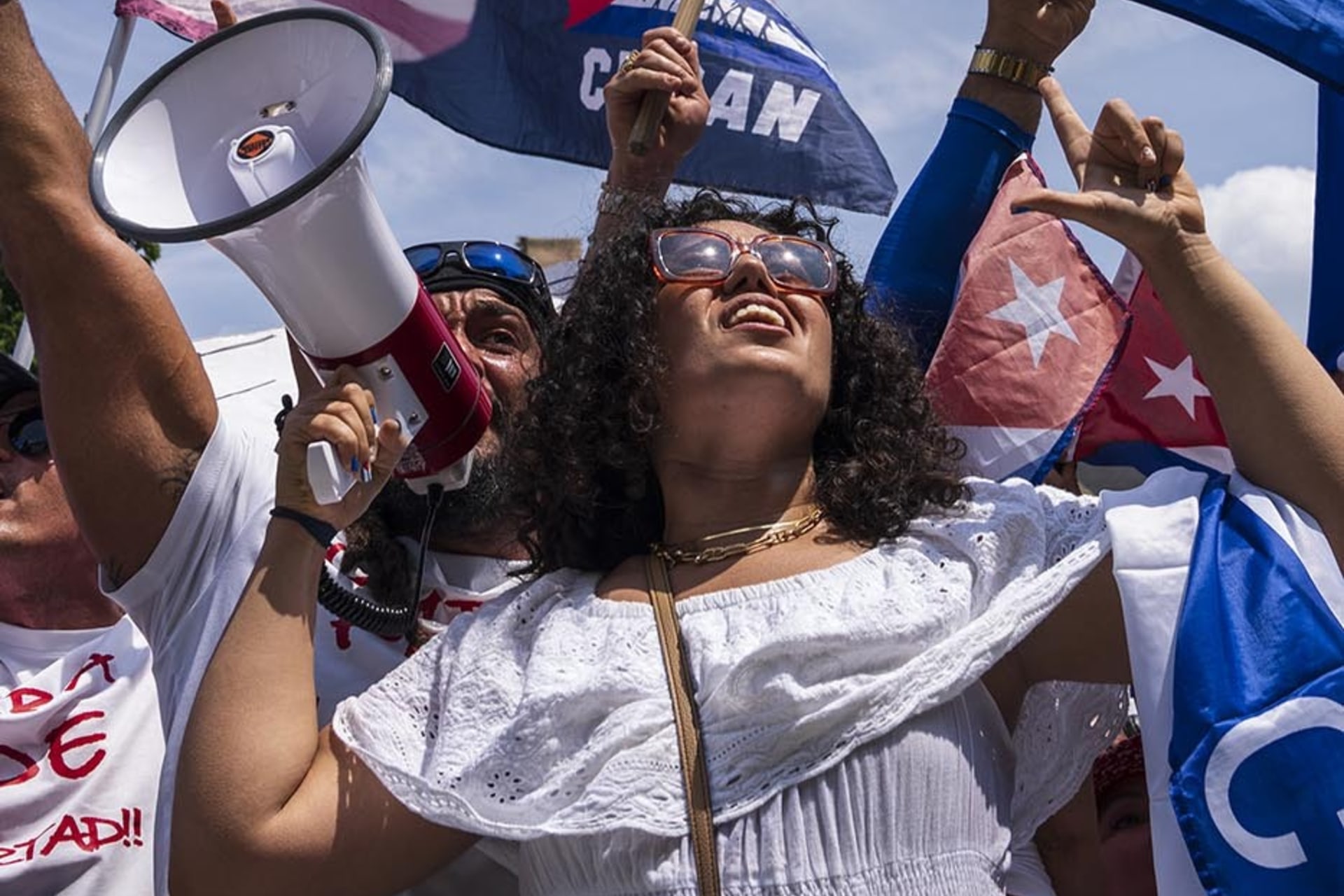Elections in Chechnya
Published
This publication is now archived.
What is at stake in Chechnya’s elections?
The parliamentary elections scheduled for November 27 will be the troubled republic’s first since a 1999 war between Chechen separatist rebels and Russian forces, the second such conflict in ten years. Chechnya’s election commission has approved 356 candidates to run for Parliament: 266 to compete for the forty seats in the Popular Assembly (the lower house) and ninety to run for the eighteen available seats on the Republic’s Council (the upper house). There are some 600,000 registered voters in Chechnya. Most experts say the elections are unlikely to be a legitimate representation of the will of the Chechen people. Regardless, “it’s an important step in that it represents Russia’s efforts to normalize the situation,” says Charles King, an expert on Central Asia and the former Soviet Republics and a professor at Georgetown University.
Will the elections be free and fair?
Unlikely, experts say. “No one, besides Moscow and the local pro-Russia government, believes the elections will be legitimate,” King says. Sixty-eight percent of Chechens who responded to a recent poll think the elections will be dishonest and only 8 percent think they will be free and fair, reported the Moscow-based newspaper Nezavisimaya Gazeta. Some 73 percent of respondents believed the election results will be decided in advance. Human rights groups agree. Tatiana Lokshina, Moscow representative of human rights group the International Helsinki Federation, told reporters September 14, “There are sufficient reasons to think the parliamentary seats have been distributed in advance.” Other rights groups are refusing to send monitors, saying the security and political conditions required for legitimate elections do not exist.
What is the history of past elections?
The last parliamentary elections in Chechnya were held in January 1997, between the 1995-96 “struggle for national liberation” between Chechen separatists and Moscow and the resumption of conflict in 1999. In May 2000, newly elected President Vladimir Putin declared that Moscow had direct control over Chechnya and appointed Akhmad Kadyrov, a former construction worker and Muslim cleric, to head the government. Kadyrov, who had been a separatist before joining the Russian side, won an allegedly fixed presidential election in October 2003. Seen as a traitor to the cause of Chechen independence, Kadyrov was assassinated by separatists in May 2004. Ramzan Kadyrov, his son, is currently the first deputy premier and head of the security forces. Experts say he wields great power and is widely feared.
What is the current security situation in Chechnya?
Russian news agencies report some 24,700 Russian troops and about 15,000 policemen from the Chechen interior ministry will guard the polls on election day. Estimates of Russian troops in the region range as high as 80,000, expert Fiona Hill said in an interview. But the streets of Grozny are still effectively a war zone, experts say; with little security, citizens are vulnerable to kidnappings and attacks by armed bandits. Memorial, a human-rights organization, says the Russian army is continuing military operations which are responsible for the “organized disappearances” of as many as 5,000 young men since the latest round of the conflict began in 1999.
What are the main parties?
The parties in the Chechen elections are the main Russian political parties, says Carol Leff, a Russia expert and associate professor of political science at the University of Illinois. They include United Russia, Putin’s ruling party. Current Chechen President Alu Alkhanov is running on the United Russia slate, which is expected to take the majority of parliamentary seats. Other Russian parties running Chechen candidates include the Communist Party (KPRF), the Union of Rights Forces (SPS), and the Liberal Democratic Party (LDPR). Leff says local Chechen politicians have been allocated to Russian-led political parties with seemingly little logic. One SPS candidate, Magomed Khambiev, is the former defense minister of the Chechen rebels. Experts say Khambiev was forced to join the SPS slate after Russian forces kidnapped forty of his relatives and held them hostage. “This is a very strange way to engage in political recruitment,” Leff says, pointing to the incident as an example of Moscow’s failures to make real efforts to build a political culture in Chechnya.
What will be the impact of the elections?
Inconsequential, experts say. Chechnya is rich in natural resources, including oil deposits, natural gas, limestone, gypsum, sulfur, and other minerals. But most observers say the elections will do little to improve life in the war-torn province, afflicted by banditry, lawlessness, and corruption. Chechens also place little hope in the elections. In another recent poll, 43 percent of respondents said the situation in Chechnya would remain unchanged after the vote.
What is Moscow’s position on the elections?
Putin told a Russian radio show September 27, “I attach very great importance to the upcoming parliamentary elections in Chechnya...It seems to me the people with the most varied political convictions should appear there [in parliament], so that all divisive issues are resolved openly, in a civilized manner, in a political process, and not through the use of force.” But experts say Putin, who has cast the Chechen struggle as a fight against a pan-Caucasus Islamic jihad—and who enjoys high approval ratings in Russia—has effectively consigned the goal of resolving the Chechnya conflict to a back burner. He will press on with the current military campaign, experts say. “The Russians have concluded that they’ve reached a level of casualties—losing a few soldiers a week—they can live with,” King says.
How do Russians feel about the conflict?
Experts say Russians have traditionally looked down on people from the North Caucasus, an attitude dating to the nineteenth-century wars of conquest, when the region was forcefully incorporated into the Russian empire. That attitude, in addition to a rash of terrorist incidents blamed on Chechens in the last decade, has ensured that Russians have no love lost for Chechens. “Russians feel quite threatened by violence, but they blame the Chechens, not the army,” King says. After each terrorist attack, “there’s always some criticism [of the Russian military’s actions] in the press, but at the end of the day, people tend to blame the perpetrators, not the [Russian] government,” he says.
What is the history of the conflict?
Chechen rebels have long agitated for independence from Russian control over the north Caucasus province, whose population is predominantly Sunni Muslim. Chechens put up some of the bitterest resistance to Russia’s century-long conquest (1818-1917) of the region, rebelling in the 1850s and again in 1919. Some Chechen and Ingush units collaborated with the invading German Army in World War II; after the war, Moscow deported many Chechens to Central Asia as punishment. In 1994, Russian forces arrived in Grozny to crush the independence movement that sprang up after the fall of the Soviet Union, along with similar movements in Georgia, Armenia, Azerbaijan, and other former Soviet republics. The war devastated the city, left tens of thousands dead, and included numerous human rights violations by Russian forces, which watchdog groups like Human Rights Watch say still continue. After several failed attempts to reach a ceasefire, Russian and Chechen authorities negotiated a settlement in August 1996 that included a full withdrawal of Russian troops and elections in Chechnya in January 1997. A peace treaty was finalized in May 1997. However, after a number of terrorist incidents blamed on Chechen rebels, particularly bombings at two Moscow apartment buildings in 1999, the Russian government launched a new military campaign into Chechnya.
How has the conflict changed?
“Unfortunately, it’s no longer possible to talk about just Chechnya. The conflict has spilled over into neighboring regions,” Leff says. Russian forces currently control the majority of Chechen territory, but rebel fighters regularly ambush the Russian military, and are increasingly recruiting suicide bombers and other fighters from neighboring Caucasus provinces to join them. Moscow’s strategy of branding anyone who opposed Russian power in the region an Islamic terrorist pushed opponents toward the influential Islamic networks that proliferated in the region in the late 1990s, experts say. The financing and influence of foreign fighters at that time helped to link the Caucasus struggle to the global war to advance Islam. “Anyone who objects to the government now finds their natural home with Islamic militants,” Leff says. This shift is reflected in the leadership of the rebel movement: Former members of the Russian army have given way to a cleric. And given the region’s fractious history with Moscow, “the idea of a larger regional caliphate is attractive to a lot of people,” she says.
What’s currently happening in the region?
“All of Chechnya’s neighbors are now basically destabilized,” Leff says. In October, an uprising in Nalchik, the capital of the neighboring republic of Kabardino-Balkariya, left over 138 people dead. Dagestan and Ingushetia, two other nearby regions, have suffered a string of recent bombings and killings. Chechnya and its neighbors, including North Ossetia, are all poor and governed by increasingly dictatorial leaders. In this environment, disaffected young men are easy targets for appeals to join the armed militancy movement. “Many are inspired by their own religious fervor, and boredom,” King says. In societies ruined by war, and with little hope for the future, “there’s not much else for them to do,” he says.
What kinds of terror attacks have Chechen rebels led against Russia?
Since 1999, Chechen separatists have been increasingly unable to fight Russian forces openly, experts say. Instead, they have launched or inspired terrorist attacks and violence throughout the Caucasus region and in Russia proper. These include: t
- September 1999: Two apartment buildings on the outskirts of Moscow are bombed, killing some 213 people. The incident prompts then-Prime Minister Putin to send Russian troops back into Chechnya.
- October 2002: Some forty Chechen rebels, including women strapped with explosives, take 900 hostages at a Moscow theater. They demand the withdrawal of all Russian forces from Chechnya. On the third day of the standoff, Russian forces storm the theater, using a powerful gas to subdue the terrorists. The incident left 129 hostages dead, all but two of them due to the gas. All the Chechens were killed.
- July 2003: Two female suicide bombers detonate themselves in the midst of a crowd at a Moscow rock concert, killing fifteen people.
- December 2003: A suicide bomber said to be a Chechen woman kills six people in an explosion outside the National Hotel in central Moscow.
- February 2004: An alleged suicide bomber kills some forty people and injures dozens of others in an explosion on a subway car in southeastern Moscow.
- September 2004: Chechen extremists take hundreds of parents and children hostage on the first day of school in Beslan, North Ossetia. On the third day of the standoff, shooting erupted between the hostage-takers and Russian security forces, who stormed the building. The incident left 331 people dead, including 186 children.
- October 13, 2005: Dozens of men, frustrated by the harassment of Muslims and the closing of mosques, take up arms in Nalchik, the capital of Kabardino-Balkariya. In two days of violence, at least 138 people are killed.
Colophon
Staff Writers
- Esther Pan





